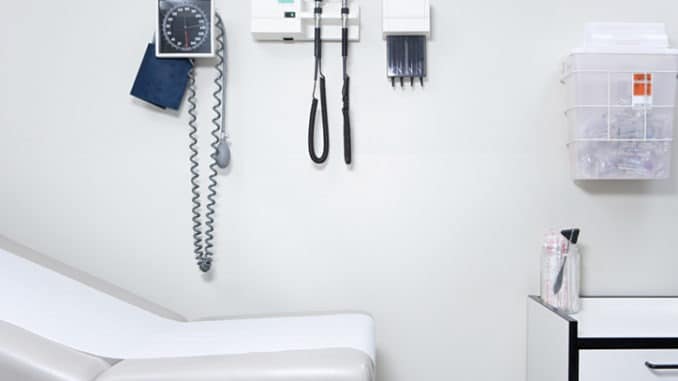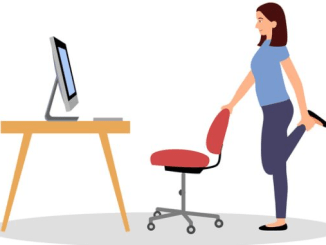
Martin Marshall, chair of RCGP, addressed members at the RCGP online conference
Speaking to the members he said:
Good morning, everyone. Thanks so much for joining the RCGP online conference ‘Building the future of general practice’.
I’m not usually lost for words, but what can I say about the last eight months?
‘It’s been a bit of a challenge’ would be one way of describing it. A challenge of a scale which our country has not seen since the Second World War; a challenge of a scale which the NHS has never seen; a challenge of a scale which certainly couldn’t have been predicted when we met in Liverpool for our inspiring annual conference a year ago.
But a challenge which general practice, you, have risen to heroically.
I wonder what we would have said if, at the beginning of this year, we were told that:
- we would have to completely change our model of delivery from predominantly open access and face-to-face, to universal triage and tech-enabled remote consultations
- many of our patients would just stop coming to see us for several months
- we would have to help establish and run pandemic services which looked after people infected with COVID while minimising the risk to others.
I wonder what we would have said if we were told that:
- we would scale back much of the routine non-urgent care that we provide for our patients and focus on those with greatest need
- we would be delivering a flu vaccination programme for 30 million people
- most hospital and community services that our patients rely on would shut down
- we would be in the front line, dealing with a level of distress and death which at times felt like it was straight out of a Hollywood disaster movie.
I suspect we might have said ‘really?’
But that is exactly what we’ve done, and general practice has coped. More than that, we’ve shown our metal and we’ve more than played our part.
And for that, on behalf of the College, I want to thank you. You are truly remarkable, a credit to your communities, to the NHS, and to our specialty. It seems to be we’re often not good at acknowledging exceptional work, thanking people and celebrating. So, thank you.
And I hope that you think that College has played its part in supporting you and your teams. We’ve tried to do this in three ways.
First, providing practical support for your day to day work. We’ve shifted rapidly to near-total digital communications with our members and massively increased the electronic footfall on our website. The resource hub is now home to a range of resources to upskill and support GPs and their teams to respond to COVID-19 and includes dedicated sections on clinical management, end of life care, ethics and health inequalities, addressing the needs of patients and clinicians from Black, Asian and minority ethnic backgrounds, and practitioner wellbeing.
Each of these resources were developed by GP clinical leads with College officers, were subject to a robust quality assurance processes and are updated regularly. The website has been viewed nearly 700,000 times and the College’s eLearning platform saw a 170% increase in users between March and May compared with the pre-crisis quarter.
We’ve produced an extensive range of webinars, blogs, vlogs, videos and other digital materials, often using social media platforms which the College had not previously utilised. Many of these events have been led by our faculties and run in partnership with other organisations.
We’ve developed a membership forum to provide members with a platform to share their thoughts, ideas, questions and experiences in relation to the pandemic. Members quickly took to the forum and since its creation over 3000 have registered. The forum is supported by our President, Professor Amanda Howe, together with RCGP staff, helping to generate discussion and ensure that key issues were responded to quickly. We are now thinking about its potential as a model for future ‘online’ communities.
And we haven’t given up on good old-fashioned email with unprecedented opening rates of up to 55% for my weekly blog.
The second area of support has been policy influencing work. Since the onset of the pandemic, the College has played a leading role in shaping the NHS response and has been a prominent voice in ensuring that the role and contribution of general practice is recognised and supported.
We have sought to engage constructively with politicians and decision makers and have articulated our concerns in public where we have considered this to be necessary. Across all four nations we’ve worked closely with policy makers and system leaders, national patient groups and our fellow Medical Royal Colleges.
I hope you’ve noticed our influence on areas such as tech-enabled consulting, PPE, testing and tracing, shielding, care homes, workload prioritisation, end-of-life care, anticipatory care planning, ethical issues and supporting returners. I’m particularly proud of the College’s work in supporting COVID-related research and surveillance though the RCGP/Oxford Research Surveillance Centre.
We have also maintained an exceptionally high level of media coverage across the UK with more than 16,000 mentions in broadcast, print and online outlets. We’ve positioned ourselves as an authoritative voice for patients, as well as promoting, and sometimes having to defend, the reputation of the profession. And we’ve held our Governments to account.
I’ve featured on BBC Radio 4’s Today Programme a record 10 times since March and our amazing group of media-savvy officers have appeared across a multitude of other outlets on national and international TV and radio.
We’ve given evidence to Select Committees and in some cases our lobbying has changed legislation and resulted in additional resources. In others, we’ve worked with our governments to help shape the development of new service models and guidance. In addition, together with other Medical Royal Colleges, we have sought to ensure that the health needs of patients with conditions other than COVID-19 are not overlooked.
The third area of support is around the College exam. You’ll be aware the Clinical Skills Assessment component of the exam was postponed in mid-March because of the COVID crisis. The consequences were not only significant for the trainees directly affected but also potentially damaging of our need to increase the size of the workforce.
Under the leadership of our chief examiner, MeiLing Denny, our Vice Chair for Education, Michael Mullholland, and the exams team, a new remote assessment examination was designed and successfully delivered in just over two months – a process that outside the crisis would have taken more than 18 months.
As a result, 1500 new GPs are delivering care for patients who would otherwise have had to remain in training. This was a remarkable achievement and I’d like to thank everyone involved, including our brilliant AiT Chair, Anthony James.
I think we have every reason to be proud of our College and I think this work has been noticed. Membership stats are a blunt measure of our success but put simply numbers should go up if we’re helping members and down if we aren’t. Our total membership is increasing – now over 54,000, active resignations are down by 7% and we’ve seen an 8% increase in reinstated members.
These figures suggest a vibrant and engaged College, despite the challenges that all organisations, particularly charities, are facing as a result of the pandemic.
However well we collectively have done in the last eight months, life for GPs and our teams is going to remain tough. Over the coming winter it’s going to get tougher.
We know that the number of patients that we’re seeing now is rising steadily since the lull in May. Data from our Research Surveillance Centre suggests that we’re now consulting with more patients than we were before the crisis. And there’s growing evidence that the patients we’re seeing are presenting with more, and more complex, problems, some of which they’ve been holding back from us during the first wave of the pandemic.
We know that we’re spending 30% more time than this time last year on clinical administration, again a consequence of catch-up but also a result of hospital and community services in many parts of the country not yet working at full capacity or full effectiveness.
We’re still supporting acute COVID services in response to the many local outbreaks across the country and the national second wave, as well as spending increasingly amounts of time supporting our patients with Long COVID. We’re delivering a safe flu vaccination programme of unprecedented scale, and we’re gearing up for our role in supporting the likely massive national COVID vaccination programme.
And of course, we’re delivering business-as-usual acute, long-term and preventative services for our patients, gradually expanding our necessarily tight focus during the height of the crisis on our most vulnerable patients, to progressively include all our patients who need our expertise and support.
When I outline what general practice has done in the last eight months, a sensible person might reasonably say that there’s cause for praise and celebration. And while the vast majority of people do recognise the exceptional achievements of general practice, there are a small but vocal number of arm-chair critics who don’t seem to get it.
And these criticisms make me livid because they gain a disproportionate amount of coverage in the media and have such a negative impact on the moral of the general practice workforce.
I’m not saying that all GPs have got it right all the time – of course we haven’t – any more than many others in these unprecedented times. But those who don’t understand the importance of maintaining good infection control processes, who don’t understand the need to prioritise those patients with greatest need over those with greatest want, who don’t understand the impact of long-standing workload pressures and, worst of all, those who are playing politics by looking for COVID scapegoats, should be ashamed of themselves.
As a College we will listen to valid criticism and we will learn, we will be up-beat and positive about what general practice is doing, but we will continue to vigorously defend general practice against unwarranted criticisms.
Over the years, people have asked me why they should be a member of the College. I find it an easy question to answer. There are a number of practical reasons of course – the CPD and guidance, the representation of our specialty in the media, the policy-influencing work – all, as I described, magnified during the COVID crisis.
But the main reason for me is not about the practical things that I get from the College, it’s about the people that I meet and the conversations that I have with them, and how those conversations change the way I think and act as a professional and a person. And I’ve learnt so much from conversations with members across the UK as a consequence of the COVID crisis, conversations which make me optimistic about the future of general practice. I want to finish this presentation with some examples.
First, I’ve learnt, or at least been reminded of, just how brilliant GPs are. There’s something about our training which prepares us to be flexible, responsive, innovative and practical. And those are all the characteristics which have come to the fore, in particular at the height of the crisis, when so many of the long-established restrictions and bureaucracy that govern our lives in the NHS were removed. General practice has been at the heart of the UK’s response to COVID. Other parts of the NHS and care system have seen why properly resourced general practice is essential for them to do their jobs.
Second, my view, based on my personal experience working as a GP, has been reinforced that undoable workload remains the biggest impediment to our ability to deliver the quality of care that patients need and that we as GPs want to provide.
Do you remember the period in May when workload was significantly reduced? Of course, we were concerned about those patients who should have sought medical care but didn’t. But having the time to do a good job with those we were seeing and the space to redesign how we deliver care felt great. I spoke to so many colleagues who said they’d re-found their mojo during this period.
As a College we have long made the case for addressing undoable workload. We were given a brief taste of what it feels like in May and we will continue to work hard on your behalf to recreate what Victor Montori calls ‘unhurried consultations’.
Third, I can see that 10-minute face-to-face consultations don’t have to be the most common mode of consultation in general practice. We’ve demonstrated how a menu of access options best serves patients and clinicians – telephone, video, email or other text-based approaches – all have their advantages, particularly when face-to-face contact is less desirable because of the need for effective infection control.
And of course, we’ve made the strong case to tech enthusiasts that face-to-face consultations are essential for a significant proportion of our consultations to enable us to provide safe, effective and personalised care for our patients.
And while we’re on technology, I’m starting to think that some form of near-universal triage is here to stay and that increasingly it will probably be patient-led digital triage. I know some patients don’t like it and I know that we have much to do in designing a process which is patient-friendly and equitable. And I know that the distinction between triage and substantive consultations is blurring.
But for as long as demand out-strips supply – and I don’t see any sign of this changing – we need a process which encourages self-care, helps point patients in the most appropriate direction, and allows our precious expertise to be focused on those with greatest need.
To achieve this, we need to work with our patient groups to understand what they want, and what they think they, and we, can do differently. In recent years the practices which have introduced triage successfully have done so by working with their patients on solutions. In the necessary rush to implement COVID-safe processes into our practices it’s been much more difficult to have those conversations. Now we need to make time for them.
Fourth, linked to the lively debates about remote consultations, the fundamental importance of relationship-based care, or the therapeutic relationship, has been reinforced for all of us. During the COVID crisis many consultations have by necessity become more transactional and this has reinforced the mistaken view of some people that general practice is largely a transactional medical specialty rather than a relational one.
But we know that the trusting relationship between a patient and a doctor – often but not always based on continuity of care – is the most effective intervention that we have at our disposal. It’s what helps us to use medications, investigations and specialist referrals appropriately and to reduce the risks of medicalising non-medical problems, it’s what encourages patients to engage with our advice, it’s what many patients want from their general practitioner.
The COVID experience has reinforced our decision to make the promotion of relationship-based care a strategic priority for the College and you’ll be hearing much more about this in coming months.
And fifth and finally, I’m learning more about the exceptional potential of general practice to contribute not only to the health and wellbeing of individual patients but also to the health of the communities that we serve. I think it’s fair to say that many of us haven’t given the same priority to the public health, or community health, model of general practice as we have to the bio-psychosocial models. This is understandable as workload has increased and we’ve had to focus our limited resources.
But during the COVID crisis I’ve heard about more and more practices which have shifted their focus. I’m hearing about practices working more closely with their public health and local government colleagues and with their local schools and employers. I’m hearing about practices which are proactively addressing health inequalities by targeting those with greatest need. I’m hearing about practices thinking more critically about the social determinants of health and where social interventions may add more value than biomedical ones.
Of course, personalised care and our relationship with individual patients lies at the heart of what we are, and many GPs will not want a wider role. That’s fine but as the role of the GP evolves as part of a growing multi-disciplinary team and as leaders within integrated care partnerships, I’m seeing a growing number of GPs starting to explore how they can contribute to the wider health of their communities. I think that’s exciting and the College is exploring how it can support you.
So, in summary, our speciality, which has always evolved and adapted, has changed dramatically in the last eight months and many of those changes are likely to be sustained into the future. You and your teams are doing a truly remarkable job and I’m confident you will continue to do so during the difficult winter ahead. Our collective aim, members and fellows, the brilliant College officers across the four nations and the College staff, is to ensure that general practice emerges even stronger from the COVID experience.
Thank you for listening.



Be the first to comment